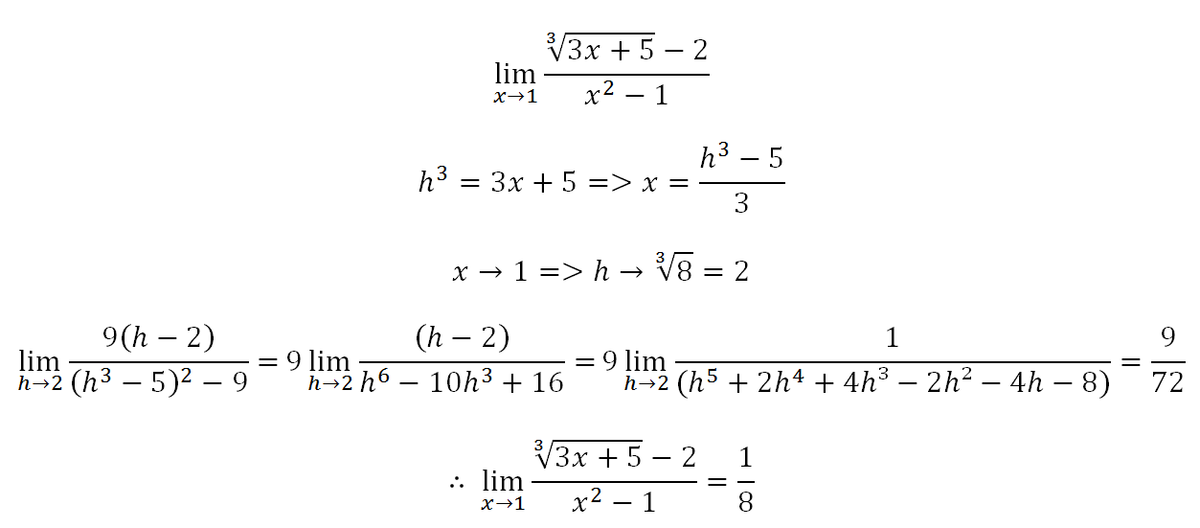This section requires Javascript.
You are seeing this because something didn't load right. We suggest you, (a) try
refreshing the page, (b) enabling javascript if it is disabled on your browser and,
finally, (c)
loading the
non-javascript version of this page
. We're sorry about the hassle.


When we try to plug in 1, we end up with the indeterminate form 0 0 :
1 2 − 1 3 3 + 5 − 2 = 0 0
This means we can try to evaluate the limit using L'Hopital's rule by replacing the numerator and the denominator with their derivatives. The derivative of 3 3 x + 5 − 2 can be calculated more easily if we translate it to its power form ( 3 x + 5 ) 3 1 − 2 . We can apply the chain and power rules here and say that the derivative of the numerator is 3 1 ( 3 x + 5 ) − 3 2 × 3 = ( 3 x + 5 ) − 3 2 . Power rule says that the derivative of the denominator is 2 x .
So we're left with:
x → 1 lim 2 x ( 3 x + 5 ) − 3 2 = 2 4 1 = 8 1